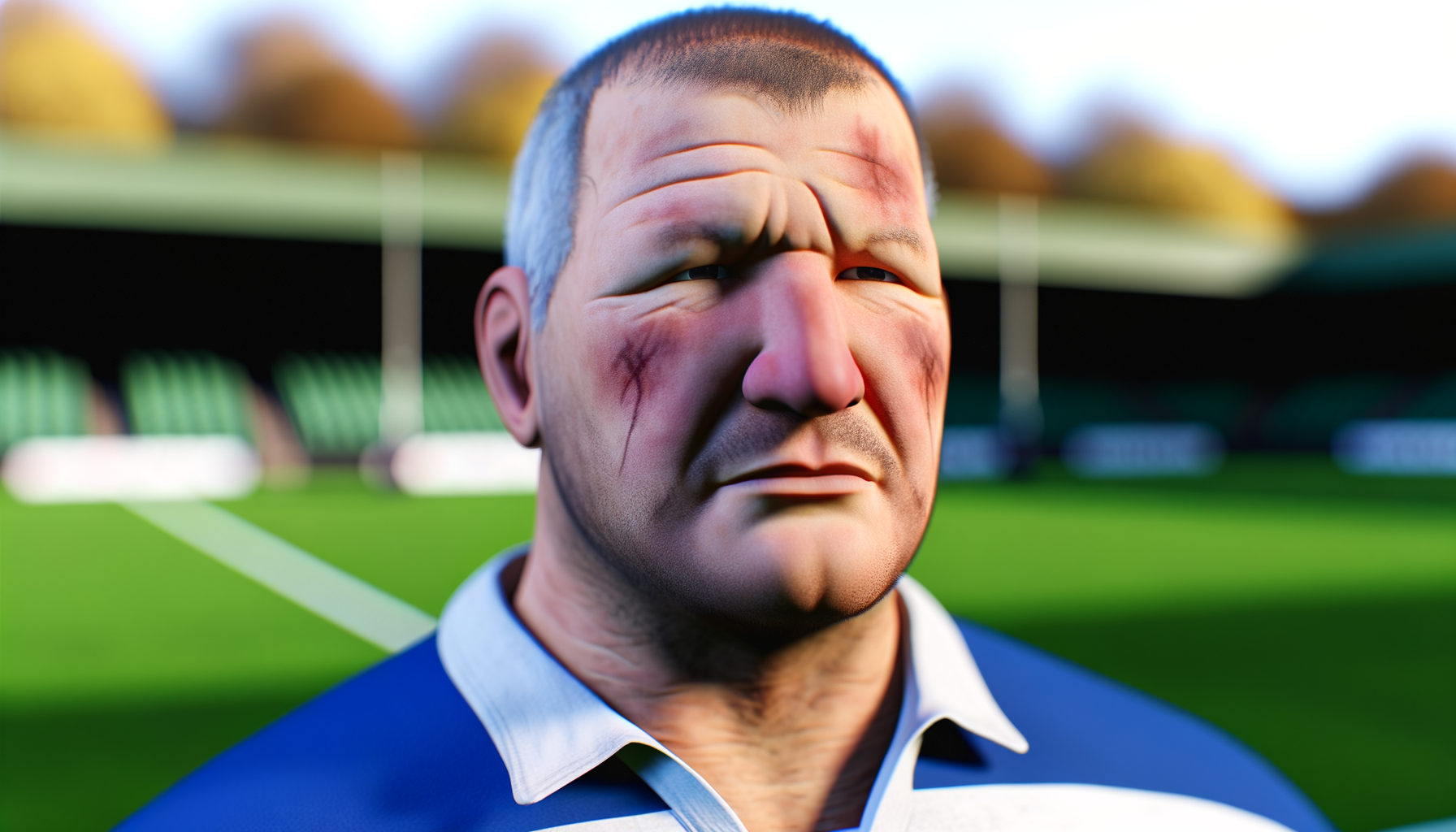Lewis Moody diagnosed with motor neurone disease
Former England rugby captain Lewis Moody reveals his motor neurone disease diagnosis, sharing his journey and plans ahead with family support.

By Editorial
Lewis Moody reveals motor neurone disease diagnosis
Lewis Moody, the celebrated former England rugby captain and 2003 World Cup winner, has publicly disclosed his diagnosis with motor neurone disease (MND), also known as amyotrophic lateral sclerosis (ALS). At 47 years old, Moody shared the deeply personal news on social media, expressing the shock and difficulty in processing this life-changing condition.
Moody played a pivotal role in England’s rugby success during the early 2000s, notably helping secure the 2003 Rugby World Cup with a memorable lineout win leading to Jonny Wilkinson’s iconic winning drop goal. His leadership extended into captaining England during the 2010 Six Nations before retiring in 2012 after a distinguished career with Leicester Tigers and Bath Rugby.
Understanding motor neurone disease and its impact
Motor neurone disease is a progressive neurological condition affecting the nerves that control muscles, leading to muscle weakness, stiffness, and eventually loss of mobility and function. The disease is currently incurable, and symptoms worsen over time, presenting significant physical and emotional challenges.
Moody’s openness shines a light on the condition, potentially raising awareness within the sporting community and beyond. His announcement underscores the importance of support systems, medical research, and fundraising efforts to improve quality of life for those living with MND.
The significance of Moody’s announcement for rugby and fans
As a figure deeply respected in rugby, Moody’s diagnosis has resonated widely. The Rugby Football Union (RFU) CEO Bill Sweeney expressed profound sadness, praising Moody’s fearless playing style and his contributions to rugby both on and off the pitch. The rugby community’s response has been one of solidarity and support, highlighting the sport’s tight-knit nature.
Such high-profile cases often accelerate awareness campaigns and funding for research. Moody’s history of charitable work, including his foundation supporting brain tumour patients, positions him well to advocate for those affected by neurological diseases.
Moody’s approach and future plans amid the diagnosis
Despite the diagnosis, Moody remains determined to maintain a positive outlook. He emphasised feeling fit and well currently, focusing on living life fully and managing changes as they come. He also intends to continue his fundraising activities, potentially expanding his efforts to include causes related to MND.
Moody requested privacy to navigate this new chapter alongside his wife Annie and son, asking for respect while reaffirming his commitment to embracing life’s opportunities with the same vigour as during his rugby career.
Fundraising and charity work: past and future
Since retiring from rugby, Moody and his family have been deeply involved in raising funds for The Lewis Moody Foundation, which supports those affected by brain tumours. His new diagnosis has inspired plans to create or support a charity dedicated to motor neurone disease, aiming to contribute to crucial research and patient care.
This proactive approach highlights how individuals affected by life-altering diagnoses can channel their energy into positive impact, inspiring communities and driving progress.
The wider context: motor neurone disease in sports
Motor neurone disease has impacted several high-profile sports figures, bringing attention to potential links between physical trauma and neurological conditions. While research is ongoing, the sporting world is increasingly recognising the need for enhanced player welfare and medical support.
Rugby, with its physical intensity, has faced scrutiny over long-term health effects on players. Moody’s situation adds to the conversation, encouraging governing bodies and clubs to prioritise medical research and aftercare for former athletes.
Supporting players during and after their careers
Many rugby organisations now offer support networks and health monitoring for retired players, addressing physical and mental health issues. Awareness campaigns and fundraising initiatives, like those Moody has been involved with, are vital to sustaining these efforts and improving outcomes.
How fans and the community can help
Support from fans and the wider community can make a significant difference. Donations to research charities, participation in fundraising events, and spreading awareness help accelerate progress in understanding and treating MND.
For those interested in sports and health, exploring comprehensive guides to UK sports leagues can provide insight into how sports organisations operate and support their athletes. Understanding this ecosystem helps fans engage meaningfully with health and welfare initiatives in sports.
Moody’s courage and openness serve as a powerful reminder of the human stories behind sports headlines and the importance of solidarity in facing life’s toughest challenges.
Conclusion: embracing life with resilience
Lewis Moody’s announcement about his motor neurone disease diagnosis is a poignant moment for rugby and the broader sporting community. His determination to face this challenge with positivity, alongside his family’s support, exemplifies resilience.
As research continues and awareness grows, Moody’s journey will undoubtedly inspire many to support MND causes and appreciate the realities faced by athletes beyond their playing days. For further updates on sports news and inspiring stories, visit Sports Scoop.
Related topics
Editorial
Sports expert at SportsScoop
Specialist in sports analysis and journalism
Related articles
Want to read more?
Explore our comprehensive collection of sports articles and analysis, or contact us for more information.



